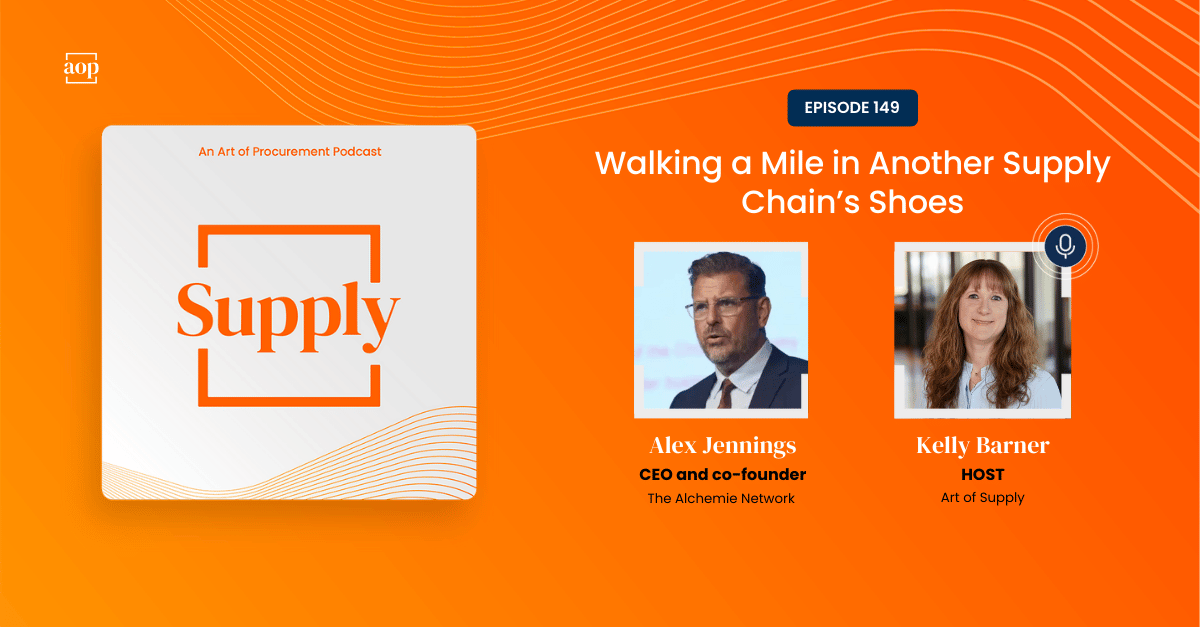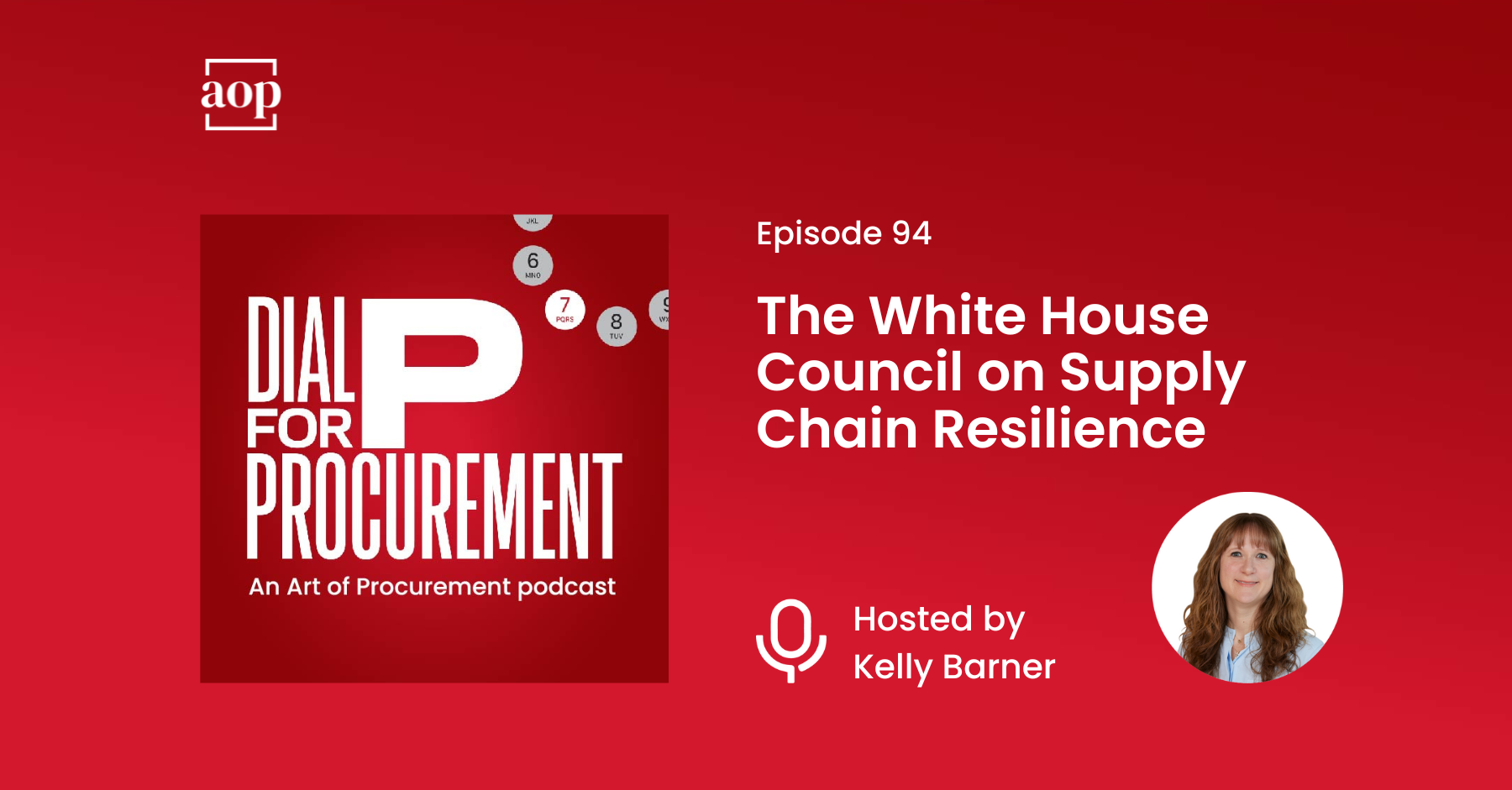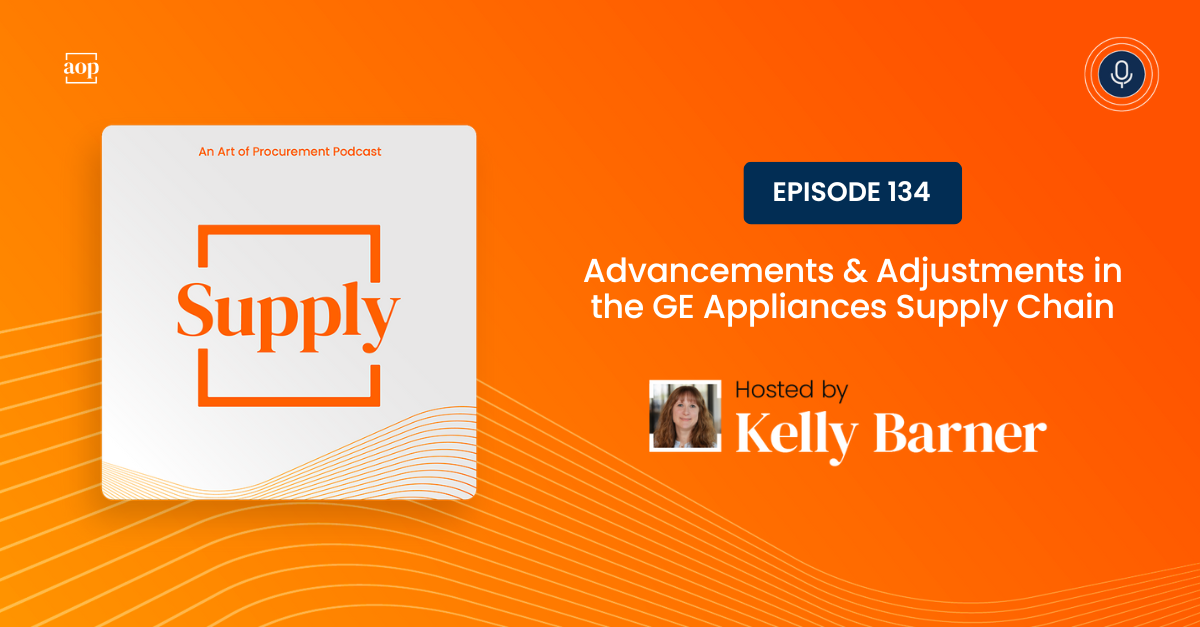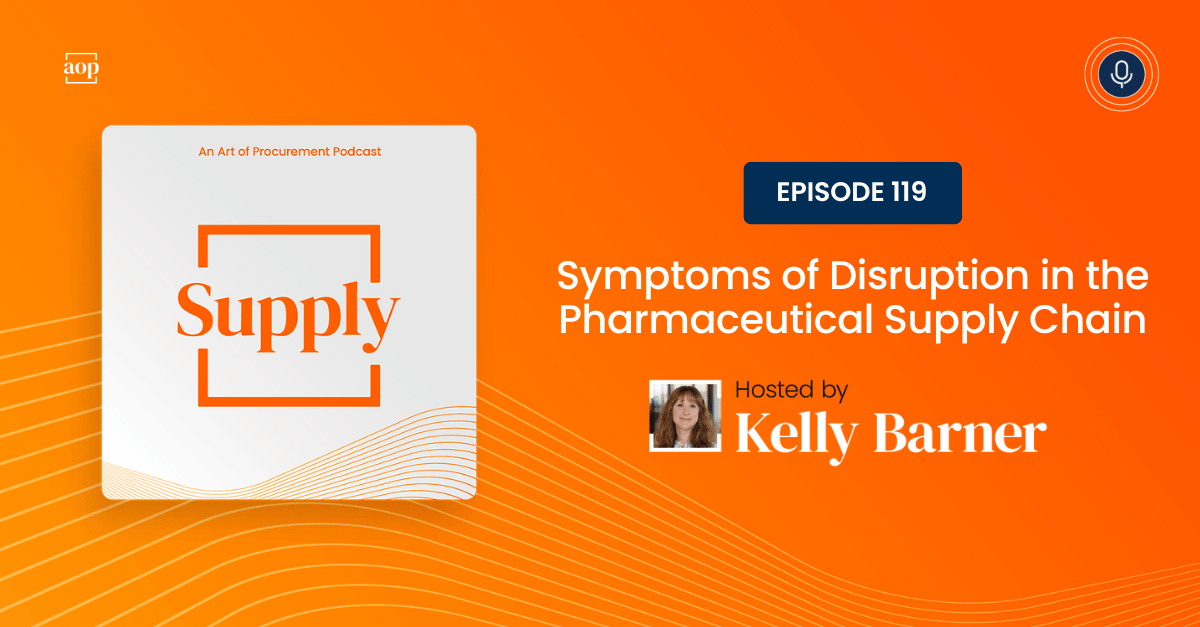4 min read
Walking a Mile in Another Supply Chain’s Shoes
Kelly Barner : Updated on December 1, 2024

“The reason I like listening is I think, ‘If I’d have been CPO there or in other organizations, what would I have done to try and prevent that? And what red flags would I have held up? And what can we learn from that so that it doesn’t happen again?’” – Alex Jennings, CEO and co-founder of The Alchemie Network
Some people consume content in order to stay up-to-date on current events. Others find entertainment in the stories being shared. Everyone should have their eyes open for transferable lessons that can help ward off trouble in our own supply chain.
As more procurement professionals grapple with consumer demands and weigh their options for remaining compliant with new laws and sustainability mandates, it’s no surprise that they’ll look for help and guidance along the way. While these folks should aim to consume content that answers their questions in a format that best speaks to them and the way they learn, the most effective resources for procurement teams trying to drive change are other procurement professionals.
That is part of why I was invited to sit down with Alex Jennings for a live interview hosted by The Alchemie Network this year. During discussion, rebroadcast as this week’s episode, we look at the evolution of Art of Procurement and dive into some of Alex’s favorite stories and lessons from past Art of Supply episodes.
As we began our conversation, Alex was curious to know more about my process for gathering, researching, and selecting the topics that I cover on Art of Supply. I shared that I only cover topics that have their own ‘side piece.’ It’s not enough for a topic to be controversial or current. Even if something is interesting, I want to find the unexpected side story within it so we have the detail, complexity, and different perspectives to create a richness that makes it a story worth telling.
With that mindset, Alex took us through a few stories and lessons that have stuck with him from past podcast episodes.
Companies are coming up on social promise deadlines…and trying to bail on them.
In thinking about the various global companies who have made promises on diversity, sustainability, and other social justice factors, Alex brought up the issue of McDonald’s not yet meeting self-imposed commitments on diversity spend.
“It made me think about the amount of companies that have committed voluntarily across the world around their commitments on net zero and carbon reduction. So many of them now are starting to look at how they can step away from those commitments. It makes me think what’s coming because someone’s going to be sitting there thinking, ‘We’re going to sue you,’” he said.
As that particular issue plays out in real-time in the courts, it sheds light on other legal mandates that have all but encouraged bad agents to defy them. That prompted Alex and I to share our thoughts on the loopholes companies can take when faced with specific rules like the Uyghur Forced Labor Prevention Act and de minimis regulations.
While those laws aimed to limit forced labor and free up time for customs to focus on more valuable imports, many companies find workarounds that technically allow them to follow the rules but defy the spirit of them.
Although supply chain professionals are trying to remain compliant with both the law and its spirit, Alex voiced his concern saying, “You have an intent to try and do something that’s good, but the end result of that is that the whole supply chain ends up being a little bit messed up.”
Even though companies around the world have these mandates to meet consumer concerns and improve sustainability, we both admit that sustainability isn’t incentivized as much as other business factors are. Because of that, many supply chains prioritize speed and cost-effectiveness thus introducing other risks. That led us to another important question.
Are we going to need the law to force us to get to the place we need to be?
In my opinion, the law’s ability to be effective comes down to how prescriptive it is. If we use the EPA and their desire to reduce emissions as an example, we can see that they weren’t overly prescriptive but rather created a situation where they’ve set expectations.
That allows everyone involved, from equipment manufacturers to 3PLs, to compete, approach the mandate realistically and cost-effectively, and push each other to be even better.
In my opinion, if you’re overly prescriptive, you don’t actually fix it. You just stick your finger in that one hole in the dam, and people find a way to go around it. But if you leave it a little bit open and allow private industry to innovate, now you’re actually on your way to solving the problem.
Alex agreed–with one caveat. “When companies, when organizations, when individuals drive a wonderful supply chain solution that creates an opportunity in this, it’s a beautiful thing. Sadly, there are still so many organizations that look at it and think, ‘Well, actually, I can’t commercialize this.’ [They’ll] make an alternative decision because they need to compete.
“That’s where I think legislation is probably going to get expanded to enable countries to still be competitive and drive the right direction.”
Speaking about private businesses, Alex brought up a significant supply chain issue that, contrary to popular belief, affects a lot more than Big Pharma.
Businesses that take government funding need to be prepared for the consequences.
Any U.S. company that accepts government funding is subject to different laws and rules, one of them being march-in rights. This means if a business uses federal funding to develop a product that becomes patented, they need to make effective commercial use of it, or the federal government can force them to license the patent to another company.
While this typically applies to pharmaceutical companies–think Operation Warp Speed for COVID-19 vaccines– it can also apply to other industries. In theory, the federal government could exert their march-in rights on any area where there’s regulation and financial incentive.
I felt a friendly warning (of sorts) was appropriate: There’s federal funding all over the place. If there are strings attached, it has to be part of the calculation and the strategy that goes along with deciding to accept that money right up front–because once you get down the road, it is too late.
As we closed out our chat, Alex shared a final piece of wisdom, while giving Art of Supply a bit of a shoutout.
“You’ve got to be able to think about every possible thing that could be happening throughout your whole supply chain. [Art of Supply] challenges me every episode, and I come away from it thinking, ‘What have I learned and how can I implement that?’ And I think it’s super.”




